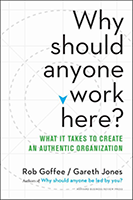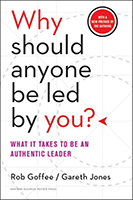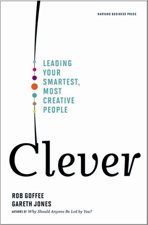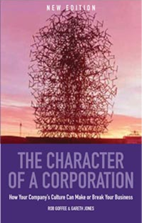What we say...
-
3 Critical Skills to Teach in Leadership Training
Sunday 1st September 2019
-
Leadership, Change and Uncertainty
Friday 6th April 2018
-
What does the Oxfam scandal tell us about organisations
Friday 23rd February 2018
-
I look forward to speaking at The HR Congress
Tuesday 31st October 2017
-
Why should anyone work here - Animation
Friday 11th December 2015
The Deepest Deficit: Trust
We recently traveled back from interesting assignments at a high profile consumer goods company and a global pharma firm. In true British fashion, we stopped off in our neighborhood pub to reconnect with the world away from big business.
Our friends asked us where we had been, and we told them about the companies we'd worked with — both of which we admire. But far from responding favorably to our work with and praise of these companies, they expressed, at best, deep skepticism, and at worst, profound cynicism about the world of business. They thought that one company put too much salt and fat in their food and that the other overcharged for their drugs.
This reinforced a growing impression on our part that trust indices in the Western world are at an all time low. We don't trust our lawyers, or accountants — they shred lots of documents. Many believe that bankers recently brought the world economic system to its knees in the crisis of 2008 and subsequent recession. Most people aren't too enamored of politicians, either.
And increasingly we don't trust our business leaders. The tentacles of corporate corruption have extended way beyond where they were ten years ago, with the scandals at Enron, Worldcom, Tyco and elsewhere. And, contrary to popular perception, the ever-growing list of examples is not limited to — or even primarily made up of — American organizations, to which we can add Parmalat, Northern Rock, Farepak, Siemens, Deutsche Post, Volkswagen, Lehman Brothers, AIG, RBS, Anglo Irish Bank, and now News Corp.
It's not surprising that business leaders are held in such low esteem when each and every day, it seems, brings a new corporate scandal. However, these transgressions and their impact on public perception illustrate not merely a crisis of business leadership, but something much more profound. For if Joe Public loses faith in the leadership and legitimacy more generally of our political and economic institutions, we are in deep trouble — our whole system and way of life at risk.Democratic capitalism relies upon trust in order to function, unlike authoritarian systems which substitute fear for trust. The positive challenge, then, is to re-establish the social conditions for trust and to redefine leadership in this new world. But thus far our responses have merely scratched the surface.
Politically, there has been enormous public pressure for improved regulation, resulting in the passage of the Dodd-Frank Act. But the fear is that we'll get Sarbanes-Oxley times ten, a miasma of bureaucratic rules which will kill creativity and innovation. Managerially, organizations have turned back to an old toolkit — reworking familiar ideas with new jargon. So now we are in pursuit of "alignment," "engagement," "discretionary effort" — new words for getting employees to work harder.
And we have been inundated with differing recipes for effective leadership. Big organizations, in particular, have invested heavily in competence models and elaborate leadership development interventions. At their worst, applied mechanically, these become not vehicles for the development of leaders but machines for the production of mind-numbing conformity.
The crisis in leadership will not be addressed by such interventions. In our working lives we are increasingly seeking moral authority — a domain of meaning and purpose which lies beyond"shareholder value," the facile mantra of the modern corporation.
For over a decade now we have urged executives to be more authentic as leaders. They have sometimes affirmed that they will be — as soon as the organizations around them are more authentic, including those in which they work, as well as those they interact with as customers, suppliers, and citizens. Their response reminds us that without companies and organizations we can trust, it is difficult, if not impossible, to rebuild the social fabric of democratic capitalism.
So what does the authentic organization look like and what does it take to lead one? These are the crucial questions we've been grappling with in our work, and which we'll attempt to shed light on in future posts.
Credit: Harvard Business Review



